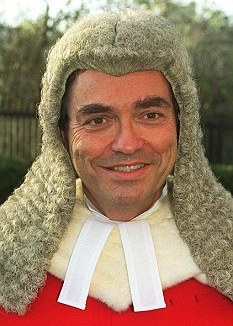 A recent ruling that held environmentalism akin to religion has had the commentators scribbling. Ted Nield wonders if it’s quite as bad as they all seem to think.
A recent ruling that held environmentalism akin to religion has had the commentators scribbling. Ted Nield wonders if it’s quite as bad as they all seem to think.
Geoscientist 20.01 January 2010
Mr Tim Nicholson, 42, was once a senior executive at Grainger plc., “the UK’s largest listed residential landlord”. In July 2008 however he was made redundant, and took Grainger’s to the Employment Tribunal, claiming unfair dismissal. Nicholson held that, as a committed environmentalist, his lifestyle choices had put him at odds with his colleagues, and that his dismissal contravened employment law that was originally designed to protect employees from religious discrimination. On November 3, Mr Justice Burton delivered a written ruling that in effect brackets strongly held non-religious philosophical stances together with faith for the purposes of the Employment Equality (Religion and Belief) 2003 regulations.
Predictably, there has been uproar from climate campaigners, who do not much like being equated with those who, for example, might believe that the Earth was created in seven days. Their beliefs are “rational”, they say, and to equate them with religion aligns them with witch-doctors and soothsayers. This is an important point because, whereas we can pick and choose religions, averting climate catastrophe requires that we all make lifestyle choices like Mr Nicholson.
The UK Government, to the annoyance of secularists, has sought to enhance the public role of religious faith. But having encouraged places of work (under penalty of law) to do all they can to accommodate the widest range of spiritual beliefs, it has now been shown that – fair play, and all that – similar rights must now be extended to people who make choices based on other criteria. Is this necessarily bad philosophy?
The name of our former President Thomas Henry Huxley is invoked every time we mis-use the word “agnostic”, which he coined to mean a person who is “incapable of knowing”. Science, said Huxley, treats the natural world. It can therefore never produce evidence of the supernatural, if it exists, and a scientist is therefore always professionally incapable of looking directly upon the face of the Creator. Thus we choose to believe - or not - as a matter of faith. This stance underpins the “Non-Overlapping Magisteria” (NOMA) Principle, promoted by the late Stephen Jay Gould, and puts atheism on the same footing as theism. This stance is practical and permissive, and allows religion and science to coexist peaceably. Alas, it runs counter to Richard Dawkins’s militant “new atheism”, which holds that only atheism is rational.
Before Mr Justice Brown’s ruling, this mattered. As an atheist, I want the protection of Employment Law too, thank you. Formerly, if I held to the NOMA principle, I could claim (as I do) that atheism is a faith. Now, if Professor Dawkins were to get a job outside a University (where he receives the greater safeguards enshrined in the Education Acts), he would enjoy employment protection too. Camilla Palmer, of law firm Leigh Day and Co, told The Guardian: "It's a great decision. Why should it only be religions which are protected?".
There is no doubt that it’s a great decision for lawyers. But perhaps secularists should be applauding it, too.